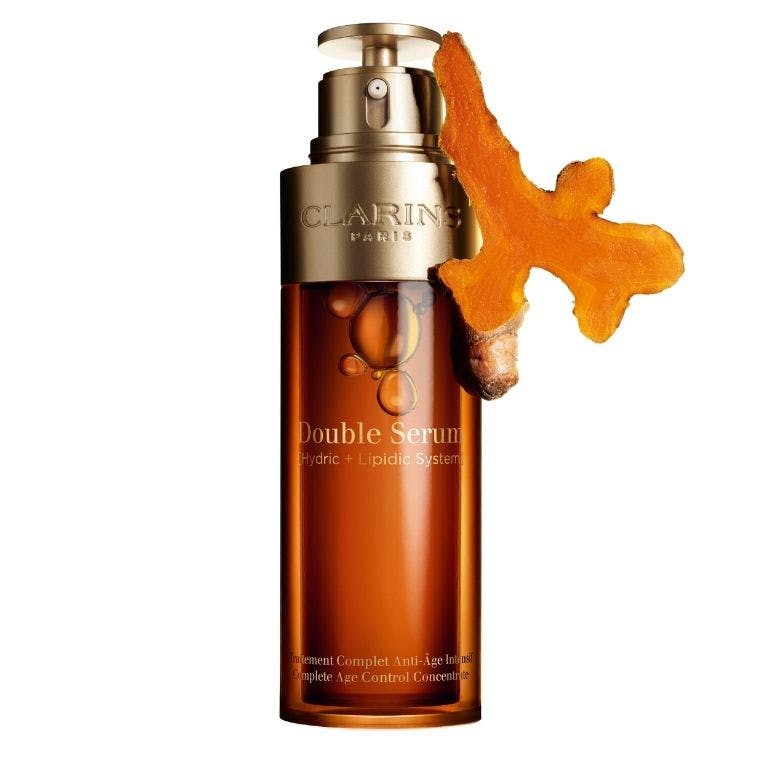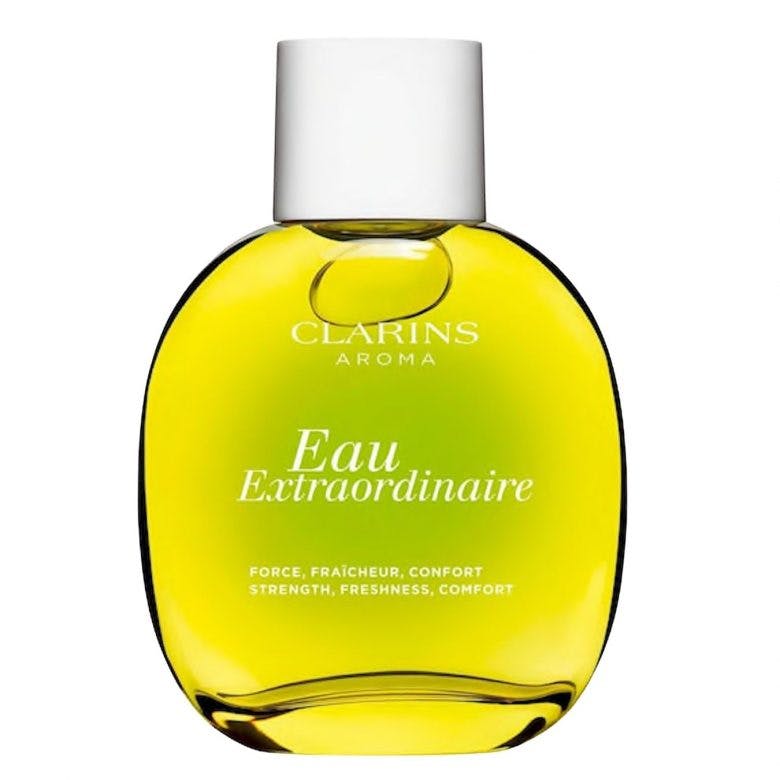The Best And Worst Beauty Products To Wear Under The Sun
7 minutes read
As the adage goes: timing is everything. So, finding the perfect products for your skin type is as important as the best time of the day to apply them in your skincare routine. If you don’t already know, there are ingredients in your beauty products that don’t like to mix; read on to find out more.
We asked skincare experts your burning beauty questions relating to hyaluronic acid, retinol and the sun or other skincare ingredients; Does hyaluronic acid increase sun sensitivity?‘ and ‘When to apply sunscreen in a skincare routine.’
Here’s your summer skin plan.

The best ingredients to use in the sun
The following ingredients, and associated products, are not photosensitive. They have been shown to be safe to use in conjunction with sun screen and will not cause sensitivity after being in the sun.
Hyaluronic acid
Does hyaluronic acid increase sun sensitivity?
It doesn’t increase sun sensitivity. Experts say this is one of the safest skincare ingredients to apply under the sun. It boosts moisture within the skin and is suitable for all skin types.
“Yes, absolutely. Hyaluronic acid is not photosensitive but easily broken down by free radicals and UV light. So it is recommended to apply products with hyaluronic acid under your sunscreen,”
Can you wear hyaluronic acid in the sun?
Absolutely! Hyaluronic acid is a popular skincare ingredient known for its hydrating properties and it is generally safe to wear in the sun, but it’s important to remember that it itself is not sunscreen. If you’re using a hyaluronic acid serum or moisturiser in the sun, it’s important to still use sunscreen to protect your skin from harmful UV rays.
The Clarins Team suggest trying products from the Hydra-Essential Range. The cream, serum, lip balm, and facial mist in this range are infused with plant-based hyaluronic acid called ‘leaf of life’, which can absorb moisture like a sponge, retaining water in the heart of its leaves. In skincare, it keeps skin hydrated, fresh, soft, plumped skin, and radiant.
Our top pick is Hydra-Essentiel Cooling Gel. It is the perfect lightweight, everyday moisturiser in summer. It has a cooling gel-cream texture that instantly melts into the skin without the iky feel. Leaving your skin moisturised even in challenging environments. Explore the range here.
Add to cart: Hydra-Essentiel Cooling Gel £38
Vitamin C
Is it OK to Wear Vitamin C in the Sun? Yes! Experts recommend wearing Vitamin C enriched products as they are generally safe to use on all skin types and will not make your skin more vulnerable to sunburn and protects the skin from sun damage. Superfood turmeric is rich in vitamin C and is the hero ingredient in Double Serum. Studies have shown that curcumin, a chemical compound found in turmeric, can decrease UV damage.

Add to cart: Double Serum, £60
“This is helpful to wear under the sun. Vitamin C is an antioxidant shown to protect against the damage done by harmful UV rays in the sun and reduce sunburn. It also promotes collagen and is helpful for pigmentation. I recommend applying this before sunscreen,”
Products you shouldn’t use in the sun?
Experts say that certain active ingredients and chemicals in our everyday beauty products, like fragrances, sunscreen (quite ironic), and serums (more on that below), increase one’s skin’s sensitivity to the sun. This type of reaction is called photosensitivity and can lead to sunburn, redness, inflammation, and hyperpigmentation.
Retinol
Retinol and the sun: Should I skip my retinol when the sun’s out? “Retinoid products are the gold standard topical treatment for wrinkles and have many benefits. But products such as Retin-A, tretinoin, tazarotene, and retinol can make skin extra sensitive to the sun,” says Dr Mia Jing Gao, London based Consultant Dermatologist.
While experts say there’s no evidence to back up claims of photoallergies or phototoxicities with retinol, skin may be slightly more sensitive to the sun because of the ‘exfoliating effect’ of retinols on the skin.
The Skin Cancer Foundation explains that skin can become more delicate and thinner due to the constant exfoliation and should not be exposed directly to sunlight.
The cell renewal and shedding are drying, removing the skin’s natural barrier of protective oils and leaving your skin defenceless against the harsh sun. Therefore, it is strongly advised to wear SPF 30 or preferably higher.
Keep in mind that if you’ve just started using the active ingredient, chances are your skin is still adapting and will be more sensitive, making it prone to burns.
To avoid risks, use retinol at night or try to find other gentler retinol alternatives and reap the same – if not better – benefits.
What are the best alternative to retinol?
Organic harungana is a plant-based active ingredient, which has been shown to work 40% more effectively than the far better-known retinol. It is found in the Super Restorative Range. It is so gentle that organic harungana is safe around the eye. A dream come true for people who want to put retinol in the delicate eye contours.
Try the Total Eye Lift. This silky gel-cream texture glides onto the eye area and visibly lifts the eyelids while reducing puffiness and dark circles in only 60-seconds. Safe to use day and night. Explore the range here.
Read next: Do Plant-Based Retinol Alternatives Really Work? Experts Weigh In
Salicylic acid
Salicylic acid and the Sun. Ingredients that facilitate skin cell turnover, including beta-hydroxy acid (salicylic acid) and alpha hydroxy acids (glycolic and lactic acids), are said to make your skin more sensitive to the sun, per the FDA. Experts warn that ‘chemical exfoliators’ leave the skin prone to sunburn because they remove a protective layer of skin.
Dr Benito advises using salicylic acid-infused products in the summer very carefully! You must use a “broad-spectrum SPF 50 and reapply every 2-3 hours.” Be fastidious if you sweat or swim as you really don’t want to cause skin damage. For sensitive types – it might be best left to the PM. For people on this ingredient in their protocols for acne would benefit from a deep dive into how to use salicylic acid for AM and PM.
When to apply sunscreen in a skincare routine?
SPF should always be the last step of your morning skincare routine. The general rule of thumb is after your moisturiser or face oil. It should be the final step in your skincare regimen or the first step in your make-up routine before primer or foundation.
But be wary, Dr Gao adds: “Some ingredients in sunscreen such as oxybenzone can cause allergies in a small number of individuals. If you find that you consistently get a rash after applying sunscreen and sun exposure, it may be worth having a ‘photopatch test’ which is an allergy test done by a dermatologist to check for photoallergy.”
Read next: Your Skincare Routine Order Explained
Photosensitive fragrances
Unfortunately, some of the fragrances on the market contain chemicals that cause sun-induced skin sensitivity, so opting for a non-photosensitive fragrance is a safe summer scent option.
“I advise caution with some fragrances and ingredients such as musk. This is one of the most common causes of photoallergic contact dermatitis when an ingredient causes an allergic reaction only after being exposed to the sun,” Dr Gao says.

Beauty Daily recommends non-photosensitive scents like the Eau Extraordinaire. It smells delicious, thanks to notes of jasmine, patchouli, red ginger, and a sparkling twist of citrus; furthermore, it’s also enriched with hyaluronic acid plant derivative organic leaf of life that leaves the skin hydrated and fresh.
Charlotte McHale, Clarins Training Manager, assures: “All the ingredients in Clarins treatment fragrances have been tested for photosensitivity. In addition, the beet-derived alcohol in the fragrance completely evaporates, leaving the sun safe skincare ingredients on the skin.”
Add to cart: Eau Extraordinaire £38
Common food that cause sun allergy
This is worth knowing for people who love to drink celery juice in the morning.
Dr Gao says: “Natural chemicals which cause sun sensitivity called ‘psolarens’ are present in uncooked fruits and vegetables such as lime and celery.”
She says,” if accidentally smeared onto the skin and exposed to the sun, it can cause ‘phytophotodermatitis,’ a toxic skin reaction with blistering. If ingesting substantial amounts of these foods, one can get a more widespread skin reaction if exposed to the sun.
Looking for more sun care related stories? Read Expert-Approved Summer Skincare Tips or 6 Ways To Get Your Body Summer Ready.
Sign up for our newsletter
We will keep you in the loop for special offers, exclusive gifts and product news.

